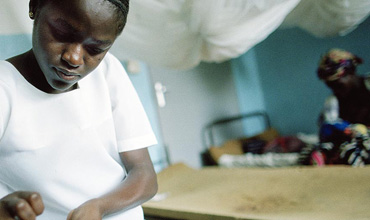Underutilization of Maternity Services at Seboche Hospital by Local Community

Abstract:
Aim: The aim of this article is to
identify the risk factors associated with pregnant women from the catchment
population not delivering at the facility
Objectives: To reduce number of home deliveries
· To strengthen utilization of maternity services by catchment
population
· To sustainably improve the health status of their
populations to achieve national and global health targets.
Literature review: According
to WHO 2014, Lesotho has a very high maternal and neonatal death rate being 487
deaths/ 100000 and 74 deaths/1000 respectively. This maybe attributed in part
to the high rate of home deliveries. The report indicated that home deliveries
accounts for 40% of all births in Lesotho and rates are even higher in the
rural areas. The latest WHO (2016) report Annex A, global coverage of skilled
attendance at birth was estimated to have reached 73% in 2013. However, despite
steady improvement globally and within regions, millions of births were not
assisted by a midwife, a doctor or a trained nurse. More than 40% of births in
the WHO African Region and WHO South-East Asia Region were not attended by
skilled health personnel.
2014
Lesotho Demographic Health Survey shows that 8 in 10 deliveries (78%) are
assisted by a skilled provider, for the most part, a nurse/midwife (61%).
Unskilled persons, such as traditional healers, village health workers, and
relatives/friends, assist in 21%; 1% of births receive no assistance. Skilled
providers assist at nearly 100% of deliveries in health facilities, but only 7%
of deliveries that take place elsewhere. Indicators related to maternal health
care have improved as depicted by Lesotho Demographic Health Survey (LDHS) 2014
showing that: “Seventy-seven percent (77%) of live births in the 5 years before
the survey took place in a health facility, while 23% were delivered at home.
Most institutional deliveries took place at public sector health facilities
(70%).
Seboche
Hospital catchment area was not an exception to this as it came to the facility
observation that few number of local people deliver in the facility hence why
the focus of the project was to increase facility based deliveries with local
pregnant women. 2016 National projected catchment population for Seboche
Hospital for expected deliveries is 431. Monthly the facility is expected to
deliver +-36 pregnant mothers.
Keywords: Underutilisation of Maternity Services,
Maternal health, Midwives, contributing factors, Interventions, community
involvement, Nurse patient relationship, Nurses’ attitude, women empowerment.
References:
[1]. Lesotho Demographic
Health Survey 2014
[2]. BMC Pregnancy childbirth 2013.
Published online 2013 february 28
[3]. data.unicef.org.> statistics by topic> maternal health updated in June 2016
[4]. SiaLubanje C, Massar K, Hamer DH, Ruiter 2015

